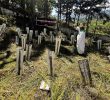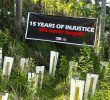(iii) The theory that the ‘correct, accurate, and truthful’ reason for the recent rise in killings lies in purges committed by the CPP/NPA. This theory was relentlessly pushed by the AFP and many of my Government interlocutors. But we must distinguish the number of 1,227 cited by the military from the limited number of cases in which the CPP/NPA have acknowledged, indeed boasted, of killings. While such cases have certainly occurred, even those most concerned about them, such as members of Akbayan, have suggested to me that they could not amount to even 10% of the total killings.
The evidence offered by the military in support of this theory is especially unconvincing. Human rights organizations have documented very few such cases. The AFP relies instead on figures and trends relating to the purges of the late 1980s, and on an alleged CPP/NPA document captured in May 2006 describing Operation Bushfire. In the absence of much stronger supporting evidence this particular document bears all the hallmarks of a fabrication and cannot be taken as evidence of anything other than disinformation.
(iv) Some killings may have been attributable to the AFP, but they were committed by rogue elements. There is little doubt that some such killings have been committed. The AFP needs to give us precise details and to indicate what investigations and prosecutions have been undertaken in response. But, in any event, the rogue elephant theory does not explain or even address the central questions with which we are concerned.
Some major challenges for the future
(a) Acknowledgement by the AFP
The AFP remains in a state of almost total denial (as its official response to the Melo Report amply demonstrates) of its need to respond effectively and authentically to the significant number of killings which have been convincingly attributed to them. The President needs to persuade the military that its reputation and effectiveness will be considerably enhanced, rather than undermined, by acknowledging the facts and taking genuine steps to investigate. When the Chief of the AFP contents himself with telephoning Maj-Gen Palparan three times in order to satisfy himself that the persistent and extensive allegations against the General were entirely unfounded, rather than launching a thorough internal investigation, it is clear that there is still a very long way to go.
(b) Moving beyond the Melo Commission
It is not for me to evaluate the Melo Report. That is for the people of the Philippines to do. The President showed good faith in responding to allegations by setting up an independent commission. But the political and other capital that should have followed is being slowly but surely drained away by the refusal to publish the report. The justifications given are unconvincing. The report was never intended to be preliminary or interim. The need to get ‘leftists’ to testify is no reason to withhold a report which in some ways at least vindicates their claims. And extending a Commission whose composition has never succeeded in winning full cooperation seems unlikely to cure the problems still perceived by those groups. Immediate release of the report is an essential first step.










